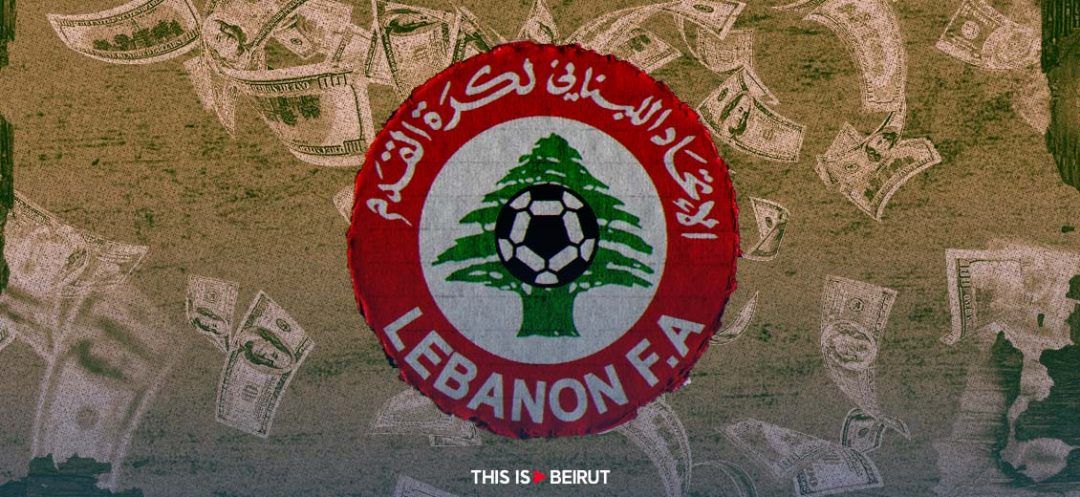
In the middle of an interesting momentum at the heart of football, we are diving into a deeper dynamic. After addressing infrastructure and biased investments, it is the primary stakeholders’ turn to provide their perspective on the circular state of popular sports. To truly understand football at its core, it is paramount to be close to the players, as they can offer their point of view on the corruption surrounding them.
These Forgotten Players
With ink staining their cleats, passion igniting their hearts, and an unwavering determination to be heard, football players in Lebanon deserve more than simply sweating it out on the field every weekend. But at what cost?
Desire fades year by year, while corruption sinks deeper into the roots of the green football pitch. The players find themselves easily discouraged, enduring injury after injury each season, all due to neglected infrastructure that significantly impacts both local and international performances. In this context, the testimony of Hatem Eid, captain of the Sagesse team, speaks volumes: “In the football world, the environment is the foundation of everything. Infrastructure plays a major role. In Lebanon, realizing one's talent to its fullest potential is hampered by the necessity of avoiding injury. Moreover, when the national team travels, the tempo of the game is disrupted because the players are not used to playing in optimal conditions.”
Christy Maalouf, an 18-year-old Lebanese player who decided to leave her homeland to pursue her passion with Paris Football Club (FC) in France, shares her insights: “Players in Lebanon feel undervalued and disengaged from football in Lebanon. Their efforts often go unrewarded, and no infrastructure is renovated. Moreover, the issue of salaries that needs attention drives young talents to either quit or seek opportunities elsewhere.”
Indeed, beyond mere structure, the pursuit of a ball comes with a price. According to our sources within the Federation, certain clubs like Al-Ansar, Safa, or Al-Ahli Nabatieh pay their players based on performance or employ delaying tactics with payments as a form of punishment. What a funny way to motivate passionate footballers. When it comes to money, as always disclosed by our club insiders, players express their feelings either grudgingly or out of disgust: “How does the Federation manage to amass fines exceeding LBP 100 million every weekend, yet nothing changes?”
Undoubtedly, the situation remains stagnant despite numerous potential solutions. Revenue sources like jersey sales, ticketing, and the excitement of packed stadiums contribute to the Federation's coffers every weekend, largely bolstered by fines imposed on clubs for trivial and outdated reasons.
FIFA continues to invest in Lebanon to enhance the reputation of sports on the local scene. According to several players wishing to remain anonymous, funds allocated for pitch renovations, exceeding 2 million dollars, may have been misappropriated. The executed work falls significantly short of expectations, often limited to superficial enhancements. Certainly, to secure funding, it is essential to demonstrate, at least, that the work has been executed. While a football field ideally requires foundations ranging from 12 to 50 meters deep and underground irrigation pipes, Lebanon's pitches rarely exceed depths of 3 to 5 meters, which are considerably cheaper, leading to surface-level irrigation alone.
The Young Cedar Saplings
Football in Lebanon transcends mere sport; it is deeply ingrained in the hearts of many enthusiasts, igniting in young talents a fervent desire to proudly represent the national colors. However, in a society plagued by corruption to its core, the hope of witnessing a new generation of footballers emerge is constantly stifled.
The development of young players is a continuous process that begins at a tender age. Regrettably, in Lebanon, when players reach the age of 18, they frequently encounter a poignant dilemma: whether to pursue further education, seek employment, or commit themselves entirely to sports. Juggling between the two, and often all three, is a perilous exercise.
Charbel, a 17-year-old aspiring professional player, shares his struggles: “Here, continuing is extremely difficult. In Europe, there are academies that offer university programs integrated into sports training facilities. However, in Lebanon, some clubs refuse to accept us if we are enrolled in university. This is immensely frustrating.” These words align with those of Christy Maalouf: “Young Lebanese talents face a multitude of obstacles in their search for fair opportunities in football. These challenges include limited access to high-quality facilities, hindering their technical growth. Furthermore, the absence of financial backing, especially for registration fees, equipment purchases, and travel costs for competitions, presents a major obstacle. Additionally, the lack of visibility and media coverage makes it difficult for these young talents to catch the eye of professional clubs or recruiters, thus limiting their perspectives for advancement in the football realm.”
The aspiring young talents who reach the level to play in the top division collide with another barrier. In fact, earning their place on the national team is not solely about talent. To build a team, the Football Federation “picks” its players from three specific clubs — Nejmeh SC, Al-Ahed, and Al-Ansar. This behavior speaks volumes and offers a telling explanation. A career, you say? Unfortunately, this barely scratches the surface!
Lebanon, rich in potential, is a country where corruption and political and religious diversity within the federation bring misery to some and happiness to others. According to our sources among players from different clubs, it is possible, thanks to political support, to benefit from a trial period within clubs. For some clubs, their doors may close if talent doesn't measure up, but this can vary from one situation to another.
We have received confirmation that some players in the national division, despite being benched, receive the same salary as those who have already proven themselves on the field. However, it is crystal clear that this remuneration is only possible due to the dark powers backing them, despite an apparent lack of talent for this magnificent sport. Talent? What talent?
[readmore url="https://thisisbeirut.com.lb/sports/237888"]
[readmore url="https://thisisbeirut.com.lb/sports/238437"]
Read more



Comments